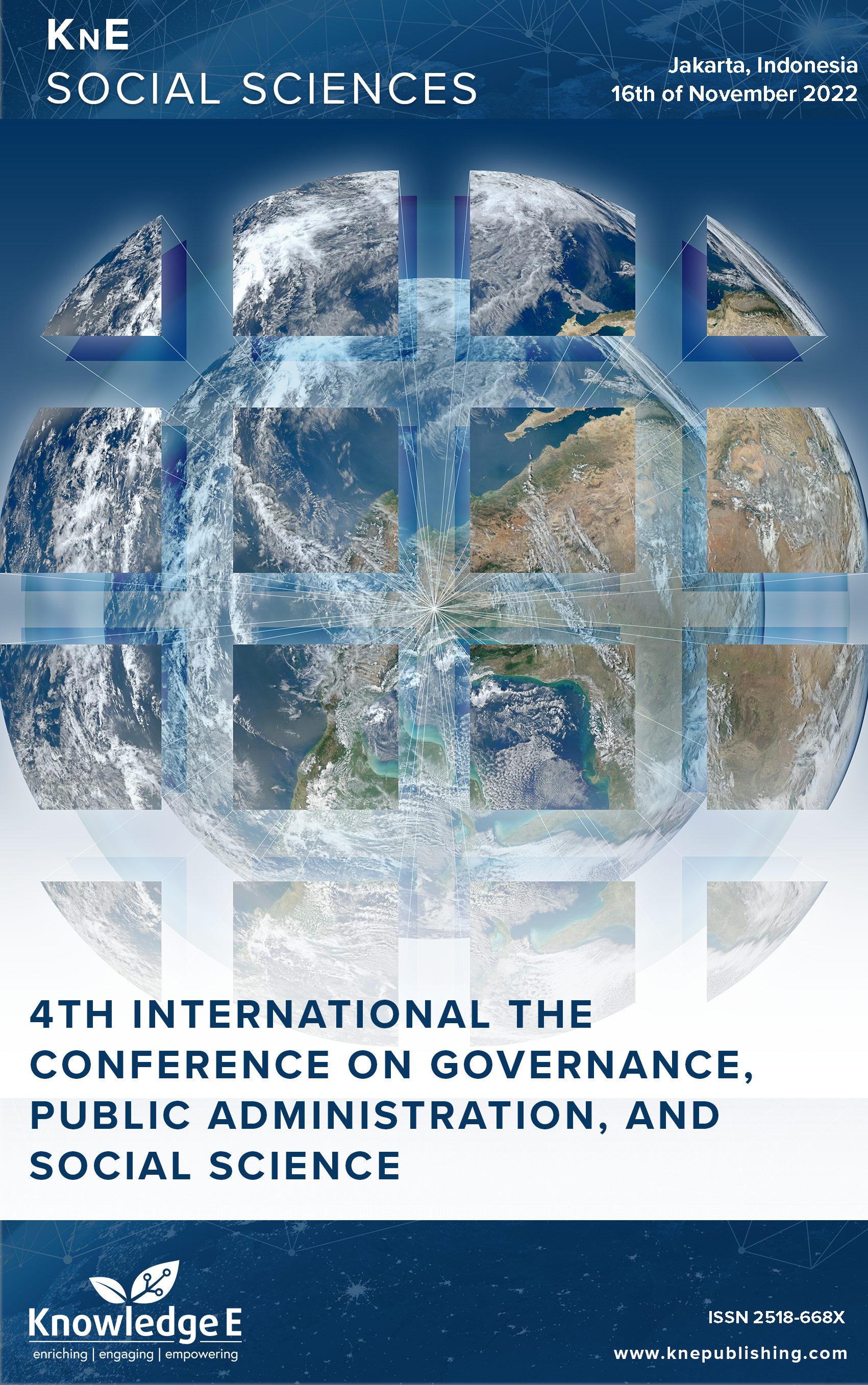The Role of Women SME's in Economic Recovery During the Covid-19 Pandemic in NTT Province
DOI:
https://doi.org/10.18502/kss.v8i11.13571Abstract
According to BPS data for 2021, as many as 64.5% of the total SME’s are managed by women. Research by WEConnect International and World Bank member IFC during 2020 found that as many as 34% of women entrepreneurs experienced an increase in anxiety that decreased productivity during the pandemic. In terms of time sharing, 27% of women entrepreneurs experienced additional responsibility for children or parents, which reduces time for business matters. This study is a descriptive study with the aim of deciphering the social symptoms studied. Descriptive research intends to provide a description of social symptoms based on the indicators that were used as the basis before. This study explains how SME’s and women as economic actors had a positive impact on building the economy during the Covid-19 pandemic in West Manggarai Regency. Trend positively shows the growth of SME’s in West Manggarai Regency, NTT. A total of 7,662 SME’s in West Manggarai grew during the Covid-19 pandemic. As many as 63% or 4,151 SME players were engaged in the agriculture, livestock, and fisheries sectors. The remaining 23% or around 1,760 actors were engaged in the trade sector, and 14% or about 1.100 business units were engaged in the processing sector, both culinary and craft. Not only technological problems, the raw materials used to produce are also an obstacle for MSME sellers. Evidence that women SME’s in West Manggarai Regency can support the economy during the Covid-19 pandemic, namely seven SME’s from Mabar Accountability who participated in the SME’s exhibition at the Mandalika MotoGP held on March 18-20, 2022, the majority of SME owners were women.
Keywords: women SME’s, economic recovery, Covid-19
References
[2] Dwijowijoto, Nugroho R, Wrihatnolo RR. SOE privatization management. Jakarta: Elex Media Komputindo; 2008.
[3] Riskin H, Alliyah S. Gender Relations, Information Technology and Coffee MSME Performance. Journal of Accounting and Management. 2021;18(01):9-21.
[4] https://www.bps.go.id/
[5] Ismayanti. Introduction to tourism. Jakarta: PT Grafindo; 2010.
[6] Ginting KR, Pancawati G, Priyono B. Empowering Women in Papua Province, Indonesia as Part of the Green Economy. ICoGPASS The 3rd International Conference on Governance, Public Administration, and Social Science (ICoGPASS). 2023;2022:1148-1157.
[7] Ginting KR, Pancawati G. Post-Pandemic National Economic Recovery: SMEs as the key of success. Proceedings of the 2nd International Conference on Administration Science 2020 (ICAS 2020). Advances in Social Science, Education and Humanities Research. 2020;564:25-29.
[8] Marthalina. Empowering women in supporting micro, small, and medium enterprises (SME’s) in Indonesia. J-3P ( Journal of Government Empowerment Development). 2018;3(1):59-76.
[9] Nur Fitri M. The role of women in economic development through MSME activities in Bantul Regency. Wedana J. 2020;VI(1):1-7.
[10] PP Number 23 of 2020 concerning the Implementation of the National Economic Recovery Program in order to support state financial policy for handling the corona virus disease 2019 (COVID-19) pandemic and/or facing threats that endanger the national economy and/or financial system stability and saving the national economy.
[11] Robinson T. Regional economy, Jakarta: PT Bumi Aksara; 2005.
[12] Satria T, Nadra I, Khair H. Marketing strategy towards improving MSME performance is moderated by technology during the Covid-19 pandemic. Sci J Manage Bus. 2021;22(2):245-260.
[13] Law of the Republic of Indonesia Number 20 of 2008 concerning Micro, Small, and Medium Enterprises.
[14] Law Number 11 of 2005 dated October 28, 2005, concerning ratification of the International Covenant on Economic, Social and Cultural Rights
[15] Neufealdt V (ed). Webster’s New World Dictionary, vol, 1. New York: Webster“s New World Clevenland; 1984.

